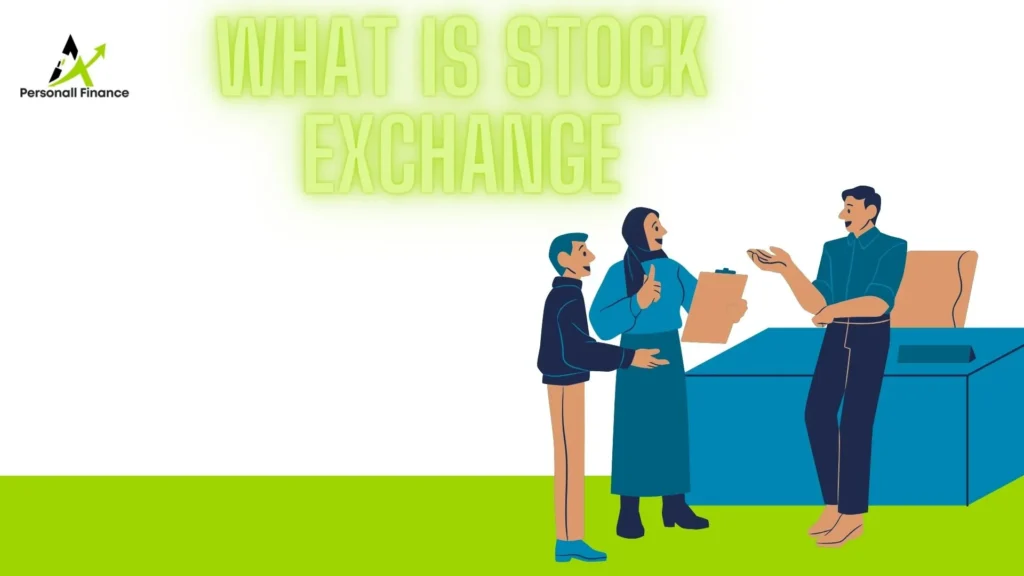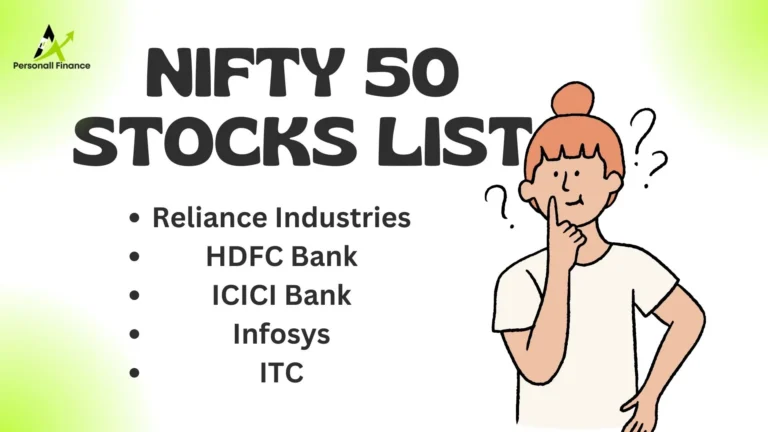Introduction
Hey there, young learners! We’re off on an amazing journey today to learn more about the fascinating world of stock Exchange. Imagine a site where you could get a little ownership in your favorite businesses. Ready? Let’s start now!

Table of Contents
ToggleWhat is Stock Exchange
A stock exchange is a regulated market where people and organizations are able to buy and sell shares in publicly traded corporations. It offers a marketplace for investors to exchange these shares, which are an ownership stake in a firm and a possible source of revenue. The share exchange is essential for promoting financial market liquidity, price discovery, and capital allocation. Through initial public offerings (IPOs) and Follow on Public Offer (FPO), businesses utilize the stock exchange to generate funds by issuing new shares to the public. On the other side, investors might buy these shares as investments in the hopes of profiting from dividends and price growth. To promote fairness and integrity in the financial system, trading activities are supervised in a regulated, open environment at the share market.
History of Stock Exchange?
The development of financial markets and the international economy may be seen in the fascinating history of stock exchanges in India and other countries.
World History: The first stock exchanges appeared in Amsterdam and London in the 17th century, marking the beginning of modern stock trading. Many people believe that the Amsterdam Stock market, which was founded in 1602 by the Dutch East India Company, was the world’s first recognized share market. It gave investors a place to buy and sell shares in a controlled environment.
History of stock exchange in india
One of Asia’s first stock exchanges, the Bombay Stock Exchange (BSE), was established in 1875. In Mumbai (then Bombay), a group of stockbrokers met under a banyan tree to exchange shares. BSE was the first exchange in India to list on itself when that happened in 1995. When the National Stock Exchange of India (NSE) was founded in 1992, it revolutionized the Indian stock market by introducing computerized trading. It quickly gained popularity due to its efficient and transparent trading platform.
Over the years, both Indian and global stock exchanges have seen significant technological advancements, regulatory changes, and periods of economic boom and downturn.
Functions of stock exchange
Consider the desire to purchase a book. You go to a store, make a purchase, and receive the book, correct? Well, it’s somewhat similar on a stock exchange. You spend your money on something called “stocks” from a business rather than books. These shares like little pieces of the business you own.
Those stocks you purchased may increase in value if the business performs very well and generates more revenue. It’s like getting a share in the business’s profits! These stocks may increase in popularity and value just like a book might, which is where you can find some financial success.
How many stock exchange in india
When it comes to stock markets, India is a true gold mine—almost like a locked room full of priceless items. There are two major ones of them: BSE, or the Bombay Stock Exchange, and NSE, or the National Stock Exchange. Think of them as unique marketplaces that don’t sell toys, instead offering something much more intriguing: company components!
These parts are like shares, and when you own them, you’re kind of like a partner in ownership of the company. So, by purchasing these unique products from the BSE and NSE stands, it’s like supporting several businesses. Just like a treasure chest holds valuable items, such stock exchanges hold opportunities to be a part of the business world.
Why Stock Exchange is Important in India?
Imagine India as a massive puzzle. In this puzzle, stock exchanges act like crucial pieces that contribute to the country’s economic growth. When people purchase stocks, companies receive funds to grow, innovate, and create new products. This growth leads to the generation of jobs, benefiting the entire population.
Consider these stock exchanges as essential connectors between people and businesses. When you buy stocks, you’re not only investing in a company but also becoming a part-owner. This ownership ties you to the company’s success, and as it prospers, so can you.
Just like puzzle pieces fitting together to create a bigger picture, stock exchanges fit into India’s economic landscape, promoting growth, employment, and shared prosperity. They contribute to making the nation’s economy brighter and dynamic.
Conclusion
Well, young explorers, you’ve now embarked on a journey into the thrilling world of share market! 🌟 You’ve learned that stock exchanges are places where people can own pieces of companies, and these pieces can grow in value over time. They’re like trading stickers, but with companies. So remember, when you hear about share markets, you’ll know it’s a place where people buy and sell pieces of companies, making our world a little bit like a giant trading playground. Keep learning and exploring – who knows, maybe someday you’ll be trading stocks too! 📈📊
Frequently asked questions.
The oldest stock exchange in India is the Bombay Stock Exchange (BSE), founded in 1875. It’s where people trade shares (stocks) of companies, making it a historic hub for stock trading in the country.
The biggest stock market in the world is the New York Stock Exchange (NYSE).
The National Stock Exchange (NSE) and Bombay Stock Exchange (BSE), (Metropolitan Stock Exchange of India Ltd), (Calcutta Stock Exchange Ltd.) are the four most important stock exchanges in India
The Securities and Exchange Board of India (SEBI) is in charge of regulating stock exchanges in those countries.



